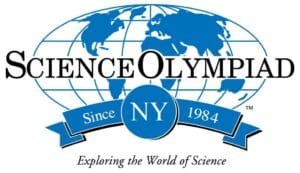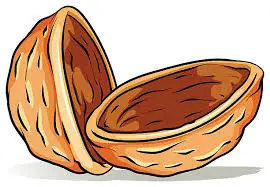Start a New Team
IN A NUTSHELL...
WHAT IS SCIENCE OLYMPIAD?
Science Olympiad ("SO") is a program which actively engages and challenges Students in Science, Technology, Engineering, and Mathematics ("STEM") through various levels of Team-based, collaborative, and competitive Tournaments. Teams of up to 15 Students participate in 23 different Events that involve the broadest range of the many scientific disciplines, including Biology, Chemistry, Earth & Space Science, Engineering & Physics, and Inquiry & the Nature of Science.

New York State Science Olympiad ("NYSSO") is the New York State Chapter of Science Olympiad.
GRADE, TEAM, AND TOURNAMENT LEVELS:
New York State Science Olympiad currently offers two organized Divisions:
Division B Middle School (Grades 6 through 9) 11 Regions
Division C High School (Grades 9 through 12) 13 Regions
Each Division is divided into geographical Regions with each Region holding a Regional Tournament. Regional Tournament Event Schedules and Regional Tournament Team Numbers will be assigned by the Regional Site Coordinator before Tournament Day. Subsequently, Division B and Division C will each have a State Tournament.
FORMING A TEAM:
The first year is always the most challenging in starting (or re-starting) a program for Students. It is also always difficult to visualize all the moving parts of creating a Team, assigning Students to particular Events, participating in a Regional Tournament, and even moving Students and equipment from one place to another.
Here are SOME ideas about starting a new Team:
![]() Have a general meeting with your Students to gauge their interest;
Have a general meeting with your Students to gauge their interest;
![]() Show the list of Events to your Students for that Tournament Season;
Show the list of Events to your Students for that Tournament Season;
![]() Have the Students select 3 to 4 Events that they would be most interested in doing;
Have the Students select 3 to 4 Events that they would be most interested in doing;
![]() Form a Student Leadership Team to help in organizing the Team;
Form a Student Leadership Team to help in organizing the Team;
![]() If you have a lot of interest for a particular Event, try to set up try-outs for the particular Event;
If you have a lot of interest for a particular Event, try to set up try-outs for the particular Event;
![]() Review and assess the Tournament Season Event Rules with your Students;
Review and assess the Tournament Season Event Rules with your Students;
![]() Plan ahead by looking at the Regional Tournament Schedule, so as to help pair up Student groups
Plan ahead by looking at the Regional Tournament Schedule, so as to help pair up Student groups
and avoid Tournament Day conflicts;
![]() In addition to the Event Rules, parse the Event Rule clarifications and FAQs; and
In addition to the Event Rules, parse the Event Rule clarifications and FAQs; and
![]() Consider attending a Coaches Workshop. Many of these are virtual, cost effective, and will introduce
Consider attending a Coaches Workshop. Many of these are virtual, cost effective, and will introduce
you to Team Coaches who are either veterans or first time Team Coaches.
TEAM COMPOSITION:
A Team is comprised of up to 15 Students, although a Team may be comprised of only 1 Student. Each Team is required to have a Team Coach (a School's faculty member is almost always required). The Team Coach acts as the official contact between the Team and New York State Science Olympiad.
A School can form up to 3 Teams per Division. For example, if Sarsfield Academy is comprised of Grade 6 through 12. Three Teams may be formed from Middle School Grades, while three Teams may be formed from the High School Grades.
Generally, a Team with Students balanced among the Grade levels is more successful. However, the following restrictions apply:
-
-
-
-
- No more than five (5) 9th Grade Students are permitted on a Team in Division B.
- No more than seven (7) 12th Grade Students are permitted on a Team in Division C.
- A Team can only be formed from Students of the same School or Home School
Association. Eligibility of a Team to participate is generally within the purview of
the School's Administration.
-
-
-
EVENTS:
For both Divisions there 23 different Events that are related to Biology, Chemistry, Earth & Space Science, Engineering & Physics, and Inquiry & the Nature of Science. Many of the Events (and their respective individual Event Rules) change each Tournament Season. This helps keep the Events fresh and engaging, while also encouraging Students to do their own work and to create adaptability at problem solving. The Events being offered each Tournament Season are always posted in advance.
The Events can be grouped into FOUR major categories:
 Build Events: Events where Students are given some specifications about a device or object
Build Events: Events where Students are given some specifications about a device or object
they are expected to design, create, and test in advance of the Tournament. The devices or
objects are often modified on site to account for an unknown parameter prior to testing or
evaluation (e.g., Electric Vehicles, Gliders, Robots, and Towers).
 Core Knowledge Events: Events with a given set of topics that Student are expected to
Core Knowledge Events: Events with a given set of topics that Student are expected to
research and master factual content. Mastery is demonstrated at a Tournament by taking a
paper-pencil, station, or computer simulation (e.g., Anatomy & Physiology, Astronomy, Fossils,
and Meteorology).
 Laboratory and Hands-On Events: Events where Students are given a general topic in
Laboratory and Hands-On Events: Events where Students are given a general topic in
which they will be expected to deepen their content knowledge of the topic and associated
research techniques prior to the Tournament. At the Tournament they will be assessed by the
completion of a hands-on task, which may or may not require a written report, within a defined
timeframe (e.g., Can't Judge a Powder, Crimebusters, Experimental Design, and Forensics).
 Hybrid Events: Events which contain elements from two, or more, of above Event types in
Hybrid Events: Events which contain elements from two, or more, of above Event types in
combination. The most common combination mixes elements of a Core Knowledge Event
with elements of a Build or Laboratory Event (e.g., Chemistry Lab, Microbe Mission, Optics,
and Wind Power).
A Team does not need to participate in all 23 Events. Scores accumulated by the Team are based on the performance of the individual Student group for that Event. Generally, a Team that participates in more Events will do better in the overall rankings of the Tournament.
STUDENT EVENT PARTICIPATION:
Each of the 23 Events are designed to be an Event for either 2 or 3 Students. Most Events allow for only 2 Students to participate, only a few Events permit 3 Students (e.g., Codebusters and Experimental Design). Each Team is allowed to participate in the Event only one time during the Tournament. If there are multiple Teams from a School, then that other Team, independent of the first, will be permitted to participate in the Event also.
The pairs of Students do not need to remain static throughout the course of the Tournament Day. That is, if a pair of Students is participating in Fossils in the morning, that pair can be broken up to do different Events with different partners later in the day.
TEAM AWARDS:
Teams are given awards in two ways:
![]() First, by individual Event performance.
First, by individual Event performance.
![]() Second, by overall Team performance on Tournament Day.
Second, by overall Team performance on Tournament Day.
Students placing First in an Event receive a score of 1 point, Second place in an Event receives 2 points, etc. At the end of Tournament Day the overall point values from each Event are tallied and the Team rankings are determined by the lowest value overall score.
For example, a Team that achieves a 1st place in 20 Events and a 2nd place in 3 Events will have an overall Team Score of 26...which is a VERY good score. To see this in action, please look at our Final State Tournament Team Rankings and Results.
REGISTRATION:
Registration for each Tournament Season opens on September 1. Generally, the deadline for Registration is 9 days prior to the Regional Tournament. However, exceptions can be made for this deadline.
INTERESTED IN EXPLORING THE WORLD OF SCIENCE WITH US?
FEELING INTERESTED, BUT A LITTLE OVERWHELMED??
FEELING EXCITED AND CAN'T WAIT TO START???

Contact Recruitment & Registration Director Maha Hrbac for more information and assistance.
